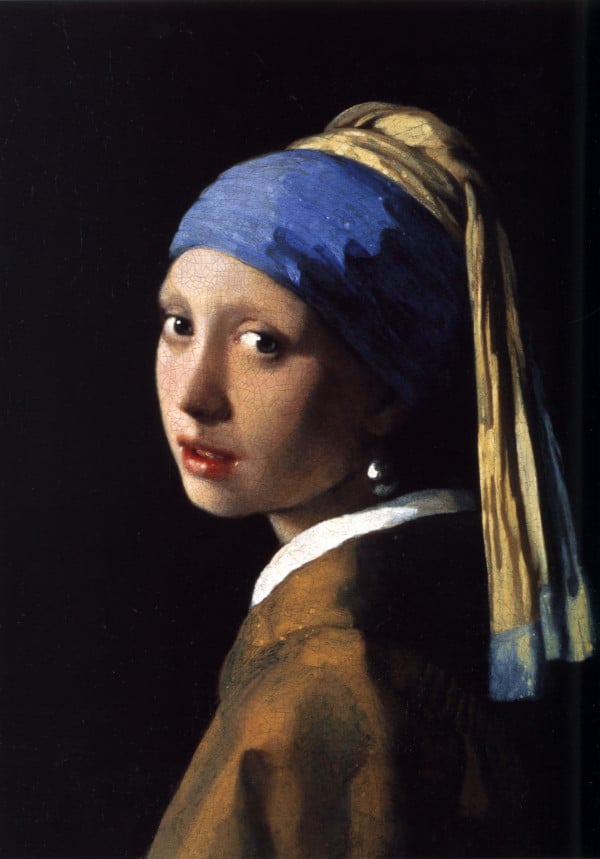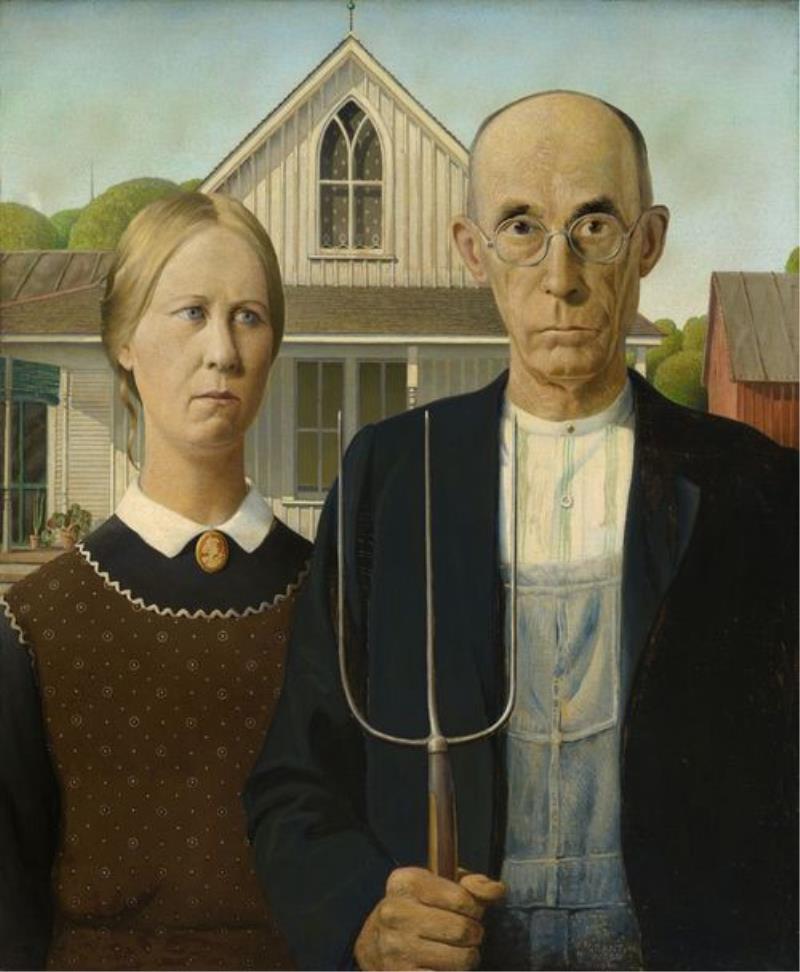Art World
6 Amazing Things We Learned From the World’s Most Famous Artworks
What do the Mona Lisa and American Gothic have in common?
What do the Mona Lisa and American Gothic have in common?
Christie Chu

1. The artist’s mystique is as valuable as his technique.
Technique and style count, but mystique is the third crucial component. The most famous artworks of all time all had a bit of intrigue in them. Was the Mona Lisa Leonardo da Vinci in drag? Was she pregnant? Was she Leonardo’s mother and a Chinese slave? We may never know.

Johannes Vermeer, Girl With A Pearl Earring (1665).
Photo: via Wikipedia Commons.
2. The best artists are the slow burning ones to popularity.
Johannes Vermeer, the painter of The Girl with the Pearl Earring, and master of light, was vastly underappreciated in his lifetime. It was only after art critic Thophile Thore-Burger published a catalogue on the artist two centuries after his death that his work gained widespread recognition. Having so few artworks in circulation (just 34!), Vermeer is one of the most sought-after masters in the world.

Vincent van Gogh, Self-Portrait (1887).
Photo: via Wikipedia.
3. As an artist, you will probably be more appreciated once you are dead or in your 80s.
Vincent van Gogh was considered a success only after his death. Twenty years after he passed, there were major retrospectives in Paris, Amsterdam, and important group exhibitions in Cologne, New York, and Berlin. For most of his tragic life, Van Gogh suffererd from a wide array of diseases, both mental and physical. According to artnet’s Price Database, the most expensive work of his at auction reached $82. 5 million in 1990—a whopping $30 million above its high estimate. At least his subway-riding lookalike is around to enjoy the fruits of his labor.

Pablo Picasso, Les Demoiselles D’Avignon (1907).
Photo: via Wikipedia.
4. The most revolutionary works of art are those often dismissed at first.
Pablo Picasso‘s Les Demoiselles d’Avignon, arguably the most famous painting by the Spanish artist, was deemed immoral when it was first shown to the artist’s close group of friends. It was painted in 1907 but was only first exhibited in 1916. It was later sold to Jacques Doucet in 1924 for 25,000 francs, a very low price for a Picasso work at the time. It currently hangs in the Museum of Modern Art in New York. This May, the artist’s Les Femme d’Algers (Version “O”) (1955) fetched a record $179.4 million.

Grant Wood, American Gothic, (1930).
5. The world’s most famous art works are by white male artists (no surprise).
The Birth of Venus, Mona Lisa, The Creation of Adam, Las Meninas, Girl with the Pearl Earring, The Third of May, Olympia, Whistler’s Mother, The Basket of Apples, Water Lilies, Starry Night, The Kiss, A Sunday Afternoon on the island of La Grande Jatte, American Gothic, The Son of Man, and Autumn Rhythm were all painted by white men. It’s not exactly a shocker that white males tend to dominate the contemporary art market as well.

Michelangelo Buonarroti, The Creation of Adam in the Sistine Chapel at the Vatican Museums, Rome. Photo: Titimaster, via Wikimedia Commons.
6. Artists nowadays don’t have the kind of discipline they used to have centuries ago.
Let’s get real, would someone devote four years of their life painting the ceiling of a chapel like Michelangelo did in the early 16th century? Probably not. That’s why renaissance painters are called “masters.”
Want to learn more cool art facts? Check out 5 things you didn’t know about Ai Weiwei’s New York days, 6 fascinating Nam June Paik facts, and 11 things you should know about Richard Prince.